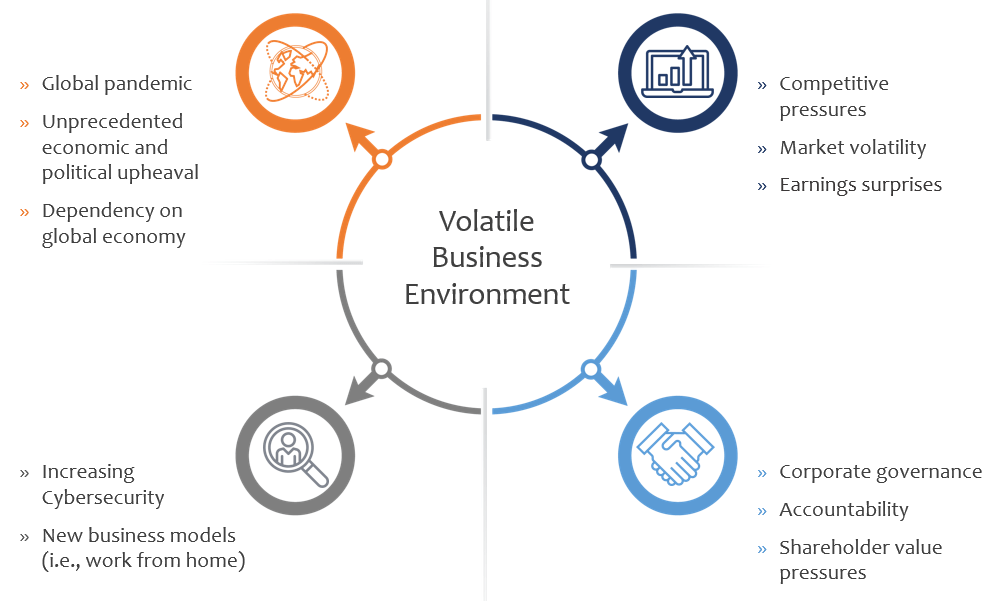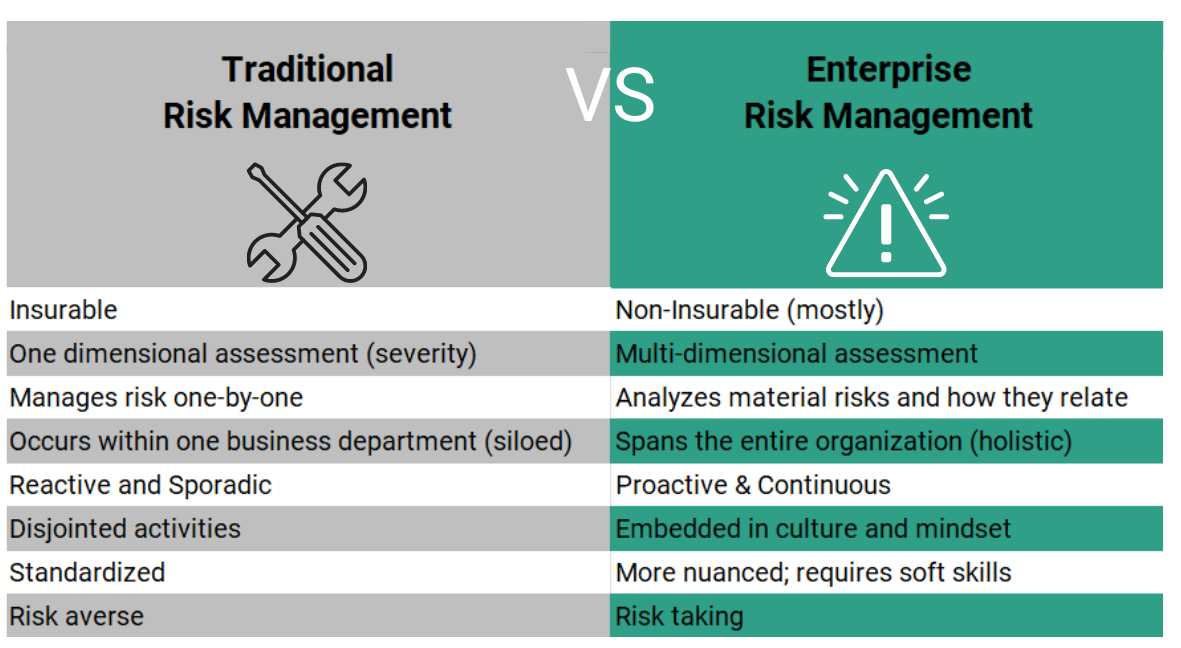Insider threats highlight a valuable direction for digital safety
Wiki Article
Discover the Function of AI in Promoting Ethics and Integrity to Fight Expert Threats Efficiently
The integration of AI in business frameworks has actually come to be crucial in attending to expert risks. By utilizing advanced analytics and real-time surveillance, AI systems can identify discrepancies from ethical habits among employees (Insider threats). This positive strategy not just boosts conformity yet additionally fosters an environment of trust. As firms significantly count on these innovations, questions occur concerning their effectiveness and potential implications for workplace culture. What lies ahead in the advancement of AI's function in promoting integrity?Recognizing Expert Dangers and Their Influence On Organizations
Although companies typically focus on external risks, expert risks posture a substantial threat that can undermine safety and security and stability. These threats emerge from individuals within the company, such as professionals or employees, that might misuse their access to sensitive info for personal gain or harmful intent. The impact of insider risks can be severe, leading to financial losses, reputational damage, and lawful implications.Factors adding to insider hazards consist of discontentment with the work environment, lack of oversight, and insufficient employee training on security methods. Organizations often have a hard time to determine these threats, as they can be difficult to find up until substantial damage has actually occurred. Avoidance techniques should focus on fostering a society of depend on and accountability, alongside applying durable surveillance and reporting systems. By identifying and attending to the complexities of insider threats, organizations can enhance their safety position and shield their important possessions from internal threats.
The Advancement of AI in Office Protection
As organizations increasingly face varied safety and security challenges, the combination of man-made intelligence (AI) in workplace security has actually progressed substantially. AI applications focused largely on automating standard security protocols, such as gain access to control and monitoring. Innovations in machine knowing and information analytics have changed AI into a proactive device capable of recognizing possible threats and susceptabilities in real-time.Organizations now take advantage of AI-driven systems to assess large quantities of information, allowing them to identify strange habits that might suggest insider threats. This evolution has actually led to the growth of innovative algorithms that can learn from historic events, boosting the system's predictive capacities. Additionally, AI devices are progressively utilized to enhance event response processes, enabling safety and security teams to act promptly and effectively.
How AI Monitors Staff Member Habits for Ethical Conformity
Artificial knowledge plays a crucial function in monitoring staff member actions to ensure honest conformity within companies. AI systems assess substantial amounts of data produced by staff members, including communications, transactions, and accessibility to sensitive details. By using sophisticated algorithms, these systems can recognize variances from developed moral criteria and firm policies.Device understanding designs continually adapt to recognize patterns of habits that might show honest breaches, such as unauthorized data access or unusual purchase tasks. Insider threats. Furthermore, AI-driven devices can supply real-time informs to monitoring, helping with prompt treatments when prospective risks are found
The combination of AI right into compliance surveillance not only enhances the organization's capacity to support stability but additionally fosters a society of responsibility amongst staff members. By promoting openness, AI systems work as a deterrent against dishonest habits, making sure that employees continue to be lined up with ethical requirements and organizational values.
Assessing Patterns: Recognizing Risky Habits With AI
An expanding variety of companies are leveraging AI to examine patterns that might show high-risk actions among staff members. By using advanced algorithms, these systems can sort via huge amounts of information, recognizing abnormalities in customer behavior that could recommend possible insider threats. For circumstances, AI can discover uncommon gain access to patterns to delicate details, such as workers accessing files outside their typical scope of work or throughout atypical hours. In addition, behavioral analytics can highlight regular modifications in a worker's communication design or partnership habits, which may symbolize underlying concerns. This aggressive technique allows organizations to identify threat factors before they escalate into substantial threats. The assimilation of AI into monitoring practices not just boosts safety but likewise promotes a culture of accountability and ethical behavior. By recognizing these patterns, organizations can much better understand the behavioral dynamics within their workforce, eventually promoting a safer and more honest work atmosphere.
Real-Time Insights: Immediate Feedbacks to Potential Hazards
Real-time insights through predictive analytics and automated alert systems play an essential duty in resolving possible risks to ethics and integrity. By leveraging these technologies, organizations can expect risky behaviors and react without delay to alleviate threats. This positive approach boosts liability and cultivates a culture of stability in various settings.Predictive Analytics Applications

Automated Alert Equipments
Anticipating analytics gives a useful site structure for companies to improve their responsiveness to honest concerns with automated alert systems. These systems use real-time information to keep an eye on tasks, identifying anomalies that might represent prospective insider dangers. By leveraging machine understanding algorithms, automated signals can determine patterns of habits that drift from developed standards, permitting quick intervention. This immediacy is crucial in mitigating threats related to dishonest practices. Automated sharp systems can enhance interaction amongst appropriate stakeholders, guaranteeing that possible dangers are addressed without delay and effectively. As companies progressively count on AI-driven solutions, the combination of automated alert systems will certainly play an essential role in fostering a society of principles and honesty, eventually safeguarding business properties.Promoting a Culture of Trust Through AI-Driven Openness
AI-driven openness can significantly boost count on within organizations by advertising responsibility and open interaction. Via real-time tracking remedies, stakeholders can obtain understandings into processes and decision-making, promoting a society of stability. Data-driven decision-making even more supports this transparency, making it possible for notified choices that line up with honest standards.Enhancing Transparency and Accountability
Just how can companies effectively foster a society of trust fund? By boosting openness and accountability with the critical use of expert system. AI can aid companies systematically track decision-making procedures, ensuring that activities straighten with well established ethical requirements. This transparency enables workers to see the reasoning behind plans and choices, reducing uncertainty and promoting a feeling of justness. Additionally, AI-driven devices can assist in clear interaction concerning assumptions and duties, empowering individuals to take ownership of their actions. As liability ends up being deep-rooted in the business culture, staff members are much more likely to participate in honest habits, understanding their actions are checked and evaluated. Ultimately, this approach grows an atmosphere where trust fund can grow, substantially mitigating the risk of expert hazards.Real-Time Surveillance Solutions
As companies progressively look for to foster a culture of count on, real-time monitoring services emerge as a critical device in improving transparency. These AI-driven systems continuously track tasks, supplying understandings right into individual actions and possible abnormalities that might indicate insider hazards. By carrying out such surveillance solutions, organizations can proactively recognize threats, making sure prompt feedbacks to suspicious tasks. This not only safeguards delicate information however also strengthens a commitment to honest practices. The clear nature of real-time monitoring helps develop employee self-confidence, as individuals are conscious that their actions are being observed for the higher good. Ultimately, these options offer to cultivate a workplace setting grounded in count on, responsibility, and honest honesty, essential for reducing expert hazards effectively.
Data-Driven Decision Making
Real-time monitoring services lay the foundation for data-driven choice making, which greatly boosts business openness. By leveraging AI modern technologies, organizations can analyze huge quantities of data to recognize patterns and anomalies a measure of possible expert risks. This logical strategy enables stakeholders to make enlightened choices based in empirical evidence, promoting a society of trust amongst staff members. Transparency in decision-making processes, bolstered by AI-driven understandings, encourages accountability and moral behavior. Furthermore, it permits companies to proactively resolve susceptabilities, ensuring that actions taken are justified and interacted clearly. As a result, the execution of data-driven strategies not just mitigates dangers connected with insider dangers yet likewise reinforces the worths of honesty and moral conduct within the organizational structure.Future Trends: The Duty of AI in Enhancing Office Ethics
While organizations progressively transform to fabricated intelligence for operational efficiency, the capacity of AI to improve office principles is getting prominence. Future trends show that AI will play a vital function in creating honest frameworks and guidelines, enabling organizations to navigate intricate moral dilemmas. By evaluating huge quantities of information, AI can determine patterns of underhanded habits and supply understandings that advertise transparency and accountability.Moreover, AI-driven devices can assist in real-time surveillance of staff member communications, ensuring adherence to honest standards. This aggressive approach not only minimizes insider dangers yet likewise cultivates a culture of stability. As organizations welcome AI technologies, they need to additionally focus on ethical programs and algorithmic bias decrease to ensure justness.
In this evolving landscape, the combination of AI in moral techniques represents a transformative change, promoting an environment where honesty is not merely expected yet systematically strengthened.
Often Asked Inquiries
How Does AI Differentiate In Between Benign and Malicious Actions?
AI differentiates between benign and malicious activities by examining patterns in user habits, utilizing artificial intelligence algorithms to determine anomalies, and reviewing contextual data to identify whether actions align with well-known norms or show prospective risks.Can AI Equipment Replace Person Judgment in Ethical Decision-Making?
AI tools can not completely replace human judgment in moral decision-making. While they can assess data and determine patterns, the nuanced understanding of context, values, and ethical effects still calls for human insight and discernment.What Are the Privacy Effects of AI Checking Employee Habits?

How Can Organizations Ensure AI Algorithms Are Morally Made?
Organizations can ensure AI algorithms are ethically made by applying transparent development procedures, entailing diverse stakeholders, conducting normal audits, and sticking to recognized ethical structures that prioritize fairness, liability, and respect for customer privacy and rights.What Training Is Required for Staff to Recognize Ai's Honest Role?
Team training must encompass fundamental AI ethics, information privacy, and prejudice understanding. Workshops, case research studies, and interactive sessions can enhance understanding, making certain workers identify AI's honest effects and its role in cultivating integrity within the company.
Artificial knowledge plays an important duty in keeping track of employee habits to guarantee honest compliance within organizations. The assimilation of AI into checking methods not just enhances security however also promotes a society of accountability and honest behavior. While companies progressively encounter moral problems and prospective honesty breaches, predictive analytics applications use prompt understandings that can help reduce these dangers. Anticipating analytics provides a foundation for organizations to improve their responsiveness to honest worries via automated sharp systems. Future trends indicate see page that AI will play a necessary duty in developing ethical frameworks and guidelines, allowing organizations to navigate complicated moral issues.
Report this wiki page